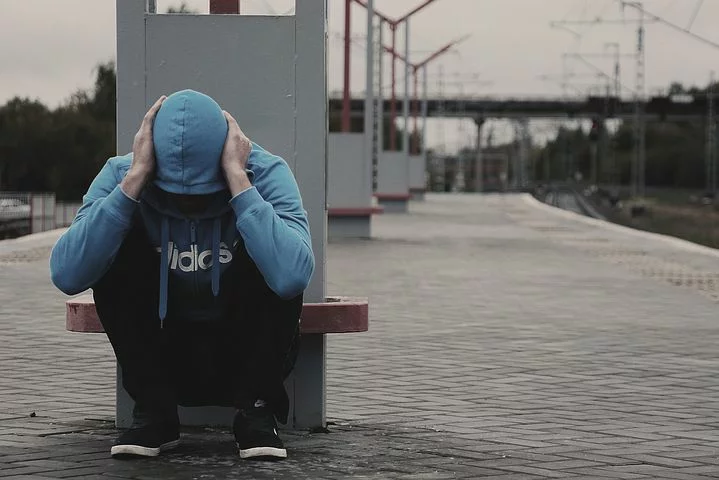Exploring how the brain responds to stress is key in understanding how anxiety disorders can disrupt the formation of new memories. A range of coping strategies can help you channel anxious energy elsewhere, rebuild your focus, and improve cognitive function.
Do you feel like you are existing in a state of both acute worry and brain fog?
An anxiety disorder might be to blame—it is believed that up to 30% of adults will be affected by anxiety at some point in their lives.
While the physical symptoms of anxiety—muscle tension, nausea, shortness of breath, trembling—can often be clearer to pinpoint, research shows that stress burdens the brain as well as the body, and affects the way we mentally process events. That is why living with anxiety can disrupt our memories, too, but adopting certain coping practices can help you clear the haze.
When is anxiety a disorder?
Anxiety describes a feeling of panic, fear, or unease. When these feelings are persistent and affect the way you generally feel and behave, or when the anxiety itself is much bigger than the original event that triggered it, it is seen as a disorder.
Types of anxiety disorders include:
- Generalised Anxiety Disorder (GAD)
- Phobias
- Panic Disorder
- Social Anxiety Disorder
- Obsessive-Compulsive Disorder
- Post-Traumatic Stress Disorder
While only a mental health professional can diagnose you with certainty, these conditions have a range of causes—genetics, stress from your surrounding environment, substance abuse, or even brain chemistry.
How does anxiety impact our memory?
The mental overdrive associated with conditions like GAD can cause a malfunction in our ability to remember, particularly in the short-term. While years of your life won’t likely be wiped from your memory, and important life events will remain clear, you might find it difficult to keep track of daily occurrences that might otherwise be taken for granted.
If you are struggling with an anxiety disorder, you might have found yourself forgetting simple moments, like:
- An upcoming work meeting
- A dinner date with a friend
- What was discussed in a recent conversation
- The content of an article you just read
- Directions to a place you were sure you had already mapped out
- One or more parts in a set of instructions
This phenomenon, known as “brain fog,” has been described by some as an inability to concentrate, a sense of confusion and disorientation.
Why does this happen?
There are multiple contributing factors to anxiety-related memory loss, but they consistently centre on the ways our bodies and our brains respond when confronted with stress.
- Raised levels of cortisol: Anxiety increases cortisol, the hormone which triggers our biological ‘fight or flight’ response in high-stress scenarios. In that state, the brain is prioritising its response to danger over other functions, like collecting information to be stored.
- Disrupted sleep: No one thinks clearly when they are struggling with insomnia, insufficient sleep, or upsetting dreams. Poor sleep affects brain function and is both a symptom and cause of anxiety.
- Panic attacks: Anxiety surrounding panic attacks can cause further anxiety, which in turn can push your brain into a stressed state in which new memories may be hazy.
- Trauma: If remembering certain past events is triggering to you, you might find yourself suppressing all or part of certain painful memories in order to cope.
Basically, when brains channel focus into defeating threats identified by our anxiety, we sacrifice some of the new information that would form our memories, creating a loss.
How can you break the pattern of anxiety and memory loss?
There is no short-term cure for anxiety, but there is much that you can do on your own or under the guidance of a mental health professional to rebuild your focus and fight brain fog.
These recommended practices are among the ways you can make a change:
- Exercise: Physical activity, even just a walk a day, benefits both the body and the brain, even increasing cognitive function. It has the added benefit of promoting better sleep and burning anxious energy.
- Brain training: Puzzles, language learning, or undertaking a new handicraft can distract you from anxiety and provide an outlet for the energy that accompanies it.
- Social connections: Interactions with other people, particularly loved ones, can give you a break from your own worries and anxiety, as well as a chance to confide in others.
- Making lists: Writing something down helps to remember it. Until you feel the fog has lifted, jot down your daily tasks to limit the chance that you’ll forget them.
- Journaling: Getting your worries on paper can help shift them out of your head, and guide you to new insights about how to manage your fears.
- New bedtime routine: Better sleep can mean less anxiety. Avoid caffeine and heavy exercise in the evening hours, and screen time right before sleeping. Healthy activities before bed include connecting with a family member, listening to relaxing music, and even just creating a calming ritual around showering or bathing.
Could my memory loss be caused by something other than anxiety?
Even if you have an anxiety disorder and are experiencing short-term memory loss, there can be other possible causes of your symptoms. If you are having trouble retaining new information, it may be wise to consult with a doctor and make sure that there is no other medical explanation for your symptoms.
Memory loss can also be caused by:
- Head injuries
- Brain tumors
- Chemotherapy
- Aging or dementia
It also can be related to other mental health issues, such as depression or substance abuse, which often are present as co-occurring conditions alongside anxiety. That is why comprehensive treatment is necessary in order to work towards establishing a healthy state of mind.
Finding Calm at The Dawn

The Dawn Wellness Centre and Rehab is an addiction centre and mental health retreat in Thailand that offers a sanctuary for growth and the rediscovery of yourself. We are committed to providing a healing environment for people seeking relief from mental health issues including anxiety.
We offer bespoke treatment plans that cater to each client’s needs by using a holistic approach informed by cutting-edge techniques with proven results. You’ll receive personalised attention from our globally trained staff as they work with you to develop a specialised treatment plan in our beautiful northern Thai location.
Scope of Anxiety Treatments
The Dawn’s clinical team—internationally accredited by the American Accreditation Commission International (AACI)—relies on a combination of the latest psychotherapeutic techniques and scientifically proven wellness practices to instill healthy coping skills. We have extensive experience working with a variety of anxiety disorders, from GAD to phobias to panic disorder.
At our unique inpatient treatment facility, clients will typically attend both group and individual therapy, partake in meditation and yoga sessions, explore art or music therapy, and try personal fitness training or Thai massage during the duration of their stay. The Dawn is the only residential centre in Asia to offer onsite TMS sessions, which is available to clients seeking treatment for anxiety.
Call The Dawn today and learn more about how you can start making happier memories.
Related Posts
 Without Warning – Understanding Panic Attacks
The sudden onset of a panic attack can literally bring you to your knees, and leave you wondering why it happened – and if it might happen again. One famous...
Without Warning – Understanding Panic Attacks
The sudden onset of a panic attack can literally bring you to your knees, and leave you wondering why it happened – and if it might happen again. One famous...
 How to Treat Anxiety – the Most Effective Ways to Stop Anxiety from Taking Control of Your Life
Everyone experiences anxiety on occasion. It is often a useful, effective and healthy reaction to heightened stress. Likewise, it is something that we can understand and resolve. However, some people...
How to Treat Anxiety – the Most Effective Ways to Stop Anxiety from Taking Control of Your Life
Everyone experiences anxiety on occasion. It is often a useful, effective and healthy reaction to heightened stress. Likewise, it is something that we can understand and resolve. However, some people...
 How Does EMDR Work?
EMDR stands for Eye Movement Desensitization and Reprocessing therapy. It is primarily used for treating post-traumatic stress disorder, or PTSD, including simple and complex traumas. EMDR is a relatively new...
How Does EMDR Work?
EMDR stands for Eye Movement Desensitization and Reprocessing therapy. It is primarily used for treating post-traumatic stress disorder, or PTSD, including simple and complex traumas. EMDR is a relatively new...
 When Does Anxiety Become an Anxiety Disorder?
It’s normal to feel anxious occasionally. We’re supposed to feel anxious when faced with a legitimate threat or when we’re trying to get something we really want, like a date...
When Does Anxiety Become an Anxiety Disorder?
It’s normal to feel anxious occasionally. We’re supposed to feel anxious when faced with a legitimate threat or when we’re trying to get something we really want, like a date...





